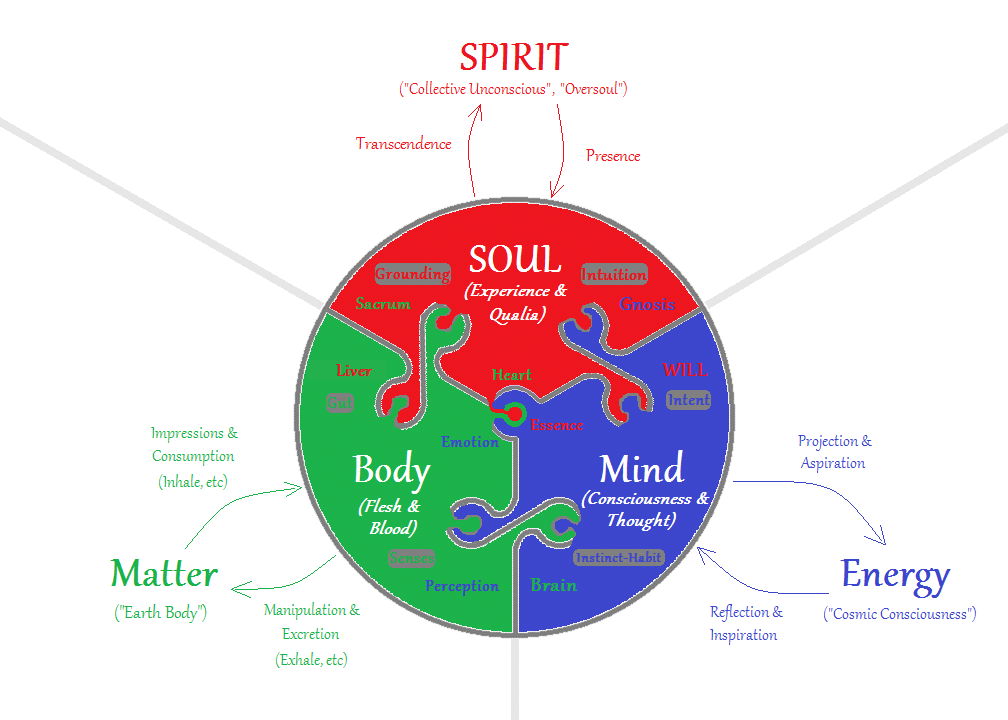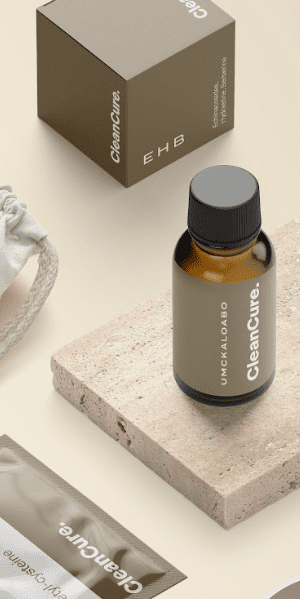
Image Source: RDNE Stock Project // holistic care
Holistic care is all about taking care of the whole person, not just treating a specific ailment or symptom. It is an approach to health that recognizes the interconnectedness of our physical, mental, emotional, and spiritual well-being. Instead of focusing solely on medical treatments and medications, holistic health care seeks to address the root causes of health issues and promote wellness through a variety of approaches.
In the following sections, we at CleanCure, a holistic urgent care provider in Portland, will discuss the various aspects of holistic care, including the principles and practices that guide it, the benefits it offers, and how it can be integrated into different healthcare settings.
What Is Holistic Health Care?

Image Source: Dustin Dewynne // holistic care
Holistic health care is all about taking care of your whole self – not just your body, but also your mind and spirit. It’s a comprehensive approach to health care that sees how everything is connected.
Instead of just treating specific problems, like a cough or a headache, holistic health care tries to find the root causes. Holistic health care digs deeper to figure out why something is happening in the first place. It doesn’t rely only on doctors and medicine. Nope, it considers lots of different ways to help you feel your best.
In holistic health care, the person being treated is seen as a unique individual, with their own set of life experiences, lifestyle choices, and beliefs. Holistic health care recognizes that these factors can greatly influence a person’s health and well-being. It looks beyond traditional approaches and considers alternative therapies and treatments, such as holistic medicine, massage therapy, and wellness coaching.
You’re a unique person with your own special experiences, choices, and beliefs. And all of those things can have a big impact on your health.
Holistic care is patient-centered, meaning that the patient’s preferences, values, and goals are taken into consideration when developing a treatment plan. It aims to provide compassionate care and improve not just the physical health of patients, but also their quality of life.
Holistic health care looks beyond traditional approaches, like just taking Western medicine, and considers lots of other things that might help – like massage therapy or coaching on how to be well.
The Principles of Holistic Care
Holistic health care is all about taking a whole-person approach to your health. It means considering all aspects of your well-being, not just treating specific problems. But what are the principles of holistic care? Let’s break it down for you.
The principles of holistic health care are the core values outlined by the Academy of Integrative Health and Medicine (AIHM). These principles guide healthcare providers in providing the best care possible.
Preventive Care
Instead of just waiting for problems to arise, holistic care focuses on preventing health issues before they even happen. It’s like putting on sunscreen to avoid sunburn instead of waiting for the burn to happen.
Integrations of Traditional and Alternative Medicine
Next is the integration of healing systems. Holistic health care recognizes that there are many different ways to promote healing. It combines traditional and alternative medicine approaches to find the best solutions for you.
Relationship-Centered Care
Relationship-centered care is another principle of holistic care. This value-based care emphasizes the importance of building a strong bond between you and your healthcare provider. This nurse-and-patient care relationship helps support your overall well-being and makes you an active participant in your own care.
Individualized Care
Individualized, patient-centered care is also key in holistic health care. It means that your healthcare provider takes into account your unique needs, preferences, and goals when creating a treatment plan to receive quality of care. It’s like getting a tailor-made outfit that suits you perfectly.
Natural Healing
We all have innate healing powers within us, and holistic care recognizes this. It believes in the body’s natural ability to heal itself and focuses on supporting and activating these inner healing resources.
Optimal Health For Life
The primary goal of holistic health care is to help you achieve optimal health. It’s not just about treating symptoms, but about guiding you towards a state of well-being in all areas of your life.
The Holistic Approach vs. Traditional Approach
You may still be confused as to what the difference between holistic healthcare and traditional healthcare is.
The traditional approach focuses mainly on treating the symptoms of a specific health issue. Holistic care is all about considering you as a whole person, not just treating one specific problem. It recognizes that different aspects of your health are all interconnected. So, when a health care provider takes a holistic approach to nursing care, they consider your physical, mental, emotional, and even spiritual well-being.
The traditional approach to nursing care might only focus on giving you medicine to treat your symptoms. But holistic nursing care goes beyond that. It understands that your physical health can be influenced by your emotional and spiritual well-being. For example, if you’re feeling stressed or sad, it can affect how well your body can heal.
That’s why a holistic nurse will take the time to connect with you on a spiritual and emotional level. They’ll listen to your concerns and support you in finding healthy ways to cope with stress or other emotional challenges. By addressing these aspects of your health, holistic nursing care aims to promote your overall well-being.
Types Of Holistic Health Care
Holistic care focuses on treating you as a whole person, considering all aspects of your well-being. Here are different types of holistic health care and how they can benefit you.
The Use Of Holistic Medicine

Image Source: Karolina Grabowska // holistic care
In healthcare settings, holistic medicine is often integrated with conventional medicine. This means that doctors and healthcare providers combine traditional medical treatments with holistic approaches to provide you with the best possible care. This integration allows for a more inclusive and comprehensive treatment plan.
There are various holistic approaches that can be used in healthcare settings. Some examples include acupuncture, acupressure, biofeedback, massage therapy, chiropractic care, manual therapy, naturopathic medications, meditation, guided imagery, yoga, therapeutic touch, reiki, and ayurveda. These approaches offer different techniques and therapies to promote healing, reduce stress, and improve overall health.
One of the benefits of holistic medicine is that it takes into account your individual needs and preferences. It recognizes that each person is unique and may require different therapies.
However, it is important to note that holistic medicine is not a complete substitute for conventional medical care. It is meant to complement and work alongside conventional care — just as how CleanCure does, an integrative naturopathic urgent care provider with a protocol to provide the cleanest treatment first, and then combine it with Western medicine if it’s the most effective treatment possible.
The Use Of Naturopathic Medicine

Image Source: Nataliya Vaitkevich // holistic care
Naturopathic physicians focus on your overall well-being by considering your body, mind, and spirit. They take extra time to understand the larger context of your health, which means they really listen to your unique story and experiences.
One thing that sets naturopathic medicine apart is its use of biologically based therapies. These include herbal remedies and special nutritional guidelines. Herbal remedies are made from plants and have been used for centuries to help with various health conditions. Special nutritional guidelines focus on using food as medicine to support your body’s natural healing abilities.
Natural Home Self-Care Practices

Image Source: Farhad Ibrahimzade // holistic care
Taking care of your health doesn’t always mean going to the doctor. There are many things you can do at home to support your holistic well-being. Holistic care means taking care of your whole self – your mind, body, and spirit. Here are some of the most common natural self-care practices that can be done at home that are considered a form of holistic self-care.
Healthy, Balanced Diet
This means eating lots of fruits, vegetables, whole grains, and lean proteins. Try to limit processed foods and sugary snacks. A healthy diet helps your body get the nutrients it needs to function properly. A meal plan based on specific health conditions, say a diet for sinus infections, is also part.
Regular Exercise
Next, regular exercise is key to staying healthy. You don’t have to spend hours at the gym – even just taking a brisk walk or dancing to your favorite music can do wonders for your body. Exercise helps improve your mood, boost your energy levels, and keep your heart healthy.
Enough Sleep
Getting enough sleep is also important for your overall well-being. Aim for at least 8 hours of sleep each night. Sleep helps your body repair and recharge, so you wake up feeling refreshed and ready to take on the day.
Stress Management
Managing stress is another crucial part of holistic care. Stress can negatively affect your health, so it’s important to find ways to relax. Try practicing meditation or deep breathing exercises to calm your mind and body. You can also try using natural remedies like herbal teas or essential oils to help you relax.
Engaging In Mind Body Medicine

Image Source: Gustavo Fring // holistic care
Holistic care also involves engaging in practices that promote both physical and mental well-being is a great way to improve a healthy lifestyle and overall wellness. By engaging in mind-body medicine, you not only improve your physical and mental well-being now but also safeguard against future ailments. One popular approach to mind-body medicine is through various interventions such as yoga and pilates.
Yoga
Yoga is a wonderful practice that combines physical movements with breath control and meditation. It helps you build strength and flexibility while also calming your mind. By engaging in yoga regularly, you can experience a sense of peace and balance, as well as reduce stress and anxiety. Yoga is also considered to be a healing exercise, as it can provide relief for sinusitis, for example.
Pilates
Another great option is Pilates, which focuses on core strength, flexibility, and body awareness. Pilates exercises can be done on a mat or with the help of specialized equipment. Engaging in Pilates can improve your posture, increase your muscle tone, and strengthen your mind-body connection.
Benefits of Holistic Health Care

Image Source: Nathan Cowley // holistic care
Holistic care is a type of healthcare that focuses on your whole self – your body, mind, and spirit. It emphasizes the importance of patient empowerment, meaning you have an active role in making decisions about your healthcare.
Cleaner Health and Lifestyle
One great benefit of holistic health care is its commitment to reducing the use of chemicals and artificial ingredients. Holistic practitioners often incorporate natural remedies and therapies into their treatments, which can be gentler on your body and have fewer side effects compared to conventional treatments. This approach can be especially helpful for those with sensitivities or allergies to certain medications.
Money-Saving Due To Prevention
In addition to being gentle on your body, holistic health care is generally more affordable than conventional treatment options. This is because holistic practitioners often focus on prevention and addressing the root causes of health issues, which can save you money on expensive tests and procedures.
Multiple Condition Management
Another important aspect of holistic care is its holistic approach to addressing multiple conditions. Rather than treating each symptom or condition in isolation, holistic practitioners consider the interconnectedness of your body, mind, and spirit. This approach can lead to more effective and comprehensive treatment plans that promote overall health and well-being.
Emphasis on Emotional and Spiritual Health
Last but not least, holistic health care recognizes the importance of emotional and spiritual health. It acknowledges that your mental and emotional well-being is just as important as your physical health. This means that holistic practitioners take the time to listen to your concerns, provide emotional support, and offer therapies that can help you find balance and peace.
Are There Risks With Holistic Care?
When it comes to holistic care, it’s important to understand that while it offers many benefits, there are also potential risks to consider. One of the main risks is the confusion between holistic care and alternative care.
Holistic health care is a comprehensive approach that takes into account the whole person – mind, body, and spirit. On the other hand, alternative care includes treatments that are not scientifically proven or widely accepted in the medical community.
While holistic care can be a great way to promote overall well-being, there are some holistic practices that claim to cure serious diseases like cancer. Be cautious of such claims and to prioritize evidence-based treatments. Relying solely on unproven remedies instead of seeking standard medical treatments can be risky and may result in delayed or inadequate care.
Also, remember that holistic health care should complement and not replace mainstream medical care. Delaying or avoiding necessary medical treatment can have serious consequences and may negatively impact your health outcomes. It’s always advisable to seek advice from healthcare professionals and weigh the risks and benefits before making any decisions regarding your health.
Integrate Holistic Care Today
Integrating holistic care into your lifestyle can lead to significant improvements in your overall well-being. As you take a holistic approach, you not only address your physical health but also your mental and emotional well-being. This comprehensive approach can result in increased energy levels, reduced stress, improved sleep, and enhanced emotional health.
So, why wait? Consider integrating holistic health care today and prioritize your optimal health. With its focus on prevention, individualized care, and integration of healing systems, holistic care offers a well-rounded approach that can truly transform your health and well-being. Make the switch and experience the benefits for yourself.
Looking for a holistic health care provider? CleanCure offers naturopathic urgent care services that you can avail of with a click of a button. It comes with doctor’s access that can guide your holistic treatment, as well as the medications you’ll be needing, all throughout your treatment.











